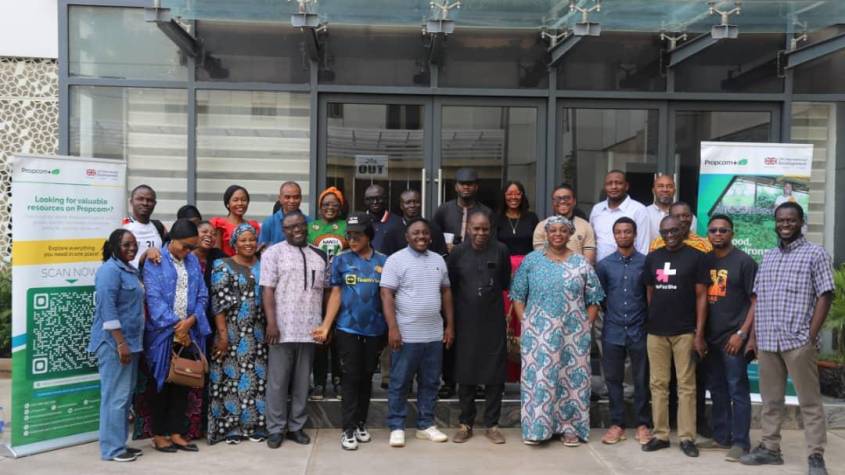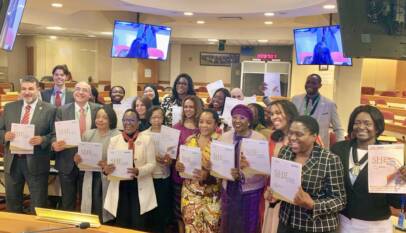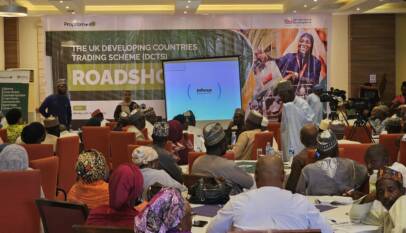Propcom+ Trains Nigerian Journalists on Climate-Smart Reporting to Drive Policy Change
Propcom+, an eight-year UK Foreign, Commonwealth and Development Office-funded rural and agricultural market development programme, last week hosted a three-day training and field engagement for Nigerian journalists in Yola, Adamawa State, to strengthen media reporting on Climate-Smart Agriculture (CSA).
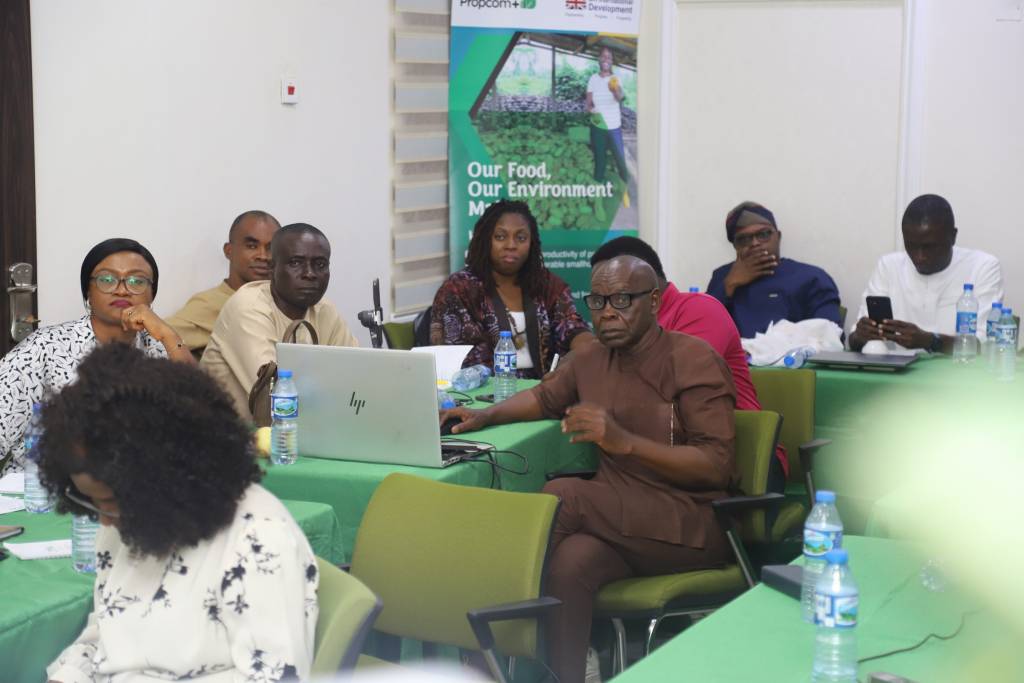
The training aimed to enhance journalists’ knowledge and skills in climate-smart reporting, with a focus on human-interest storytelling. Participants were equipped with the right content, data, and tools to produce accurate, independent, human-centered and solutions-driven stories on Climate-Smart Agriculture (CSA)—highlighting its role in addressing food security, climate resilience, and sustainable rural livelihoods.
The journalist participants were also introduced to Propcom+’s market systems approach and exposed to relevant sources, and honed their storytelling techniques to influence policy reforms. The training further seeks to build stronger partnerships between Propcom+ and the Nigerian media as key allies in development, ensuring that rural communities—especially the poor and vulnerable—benefit from resilient and inclusive climate-smart practices.
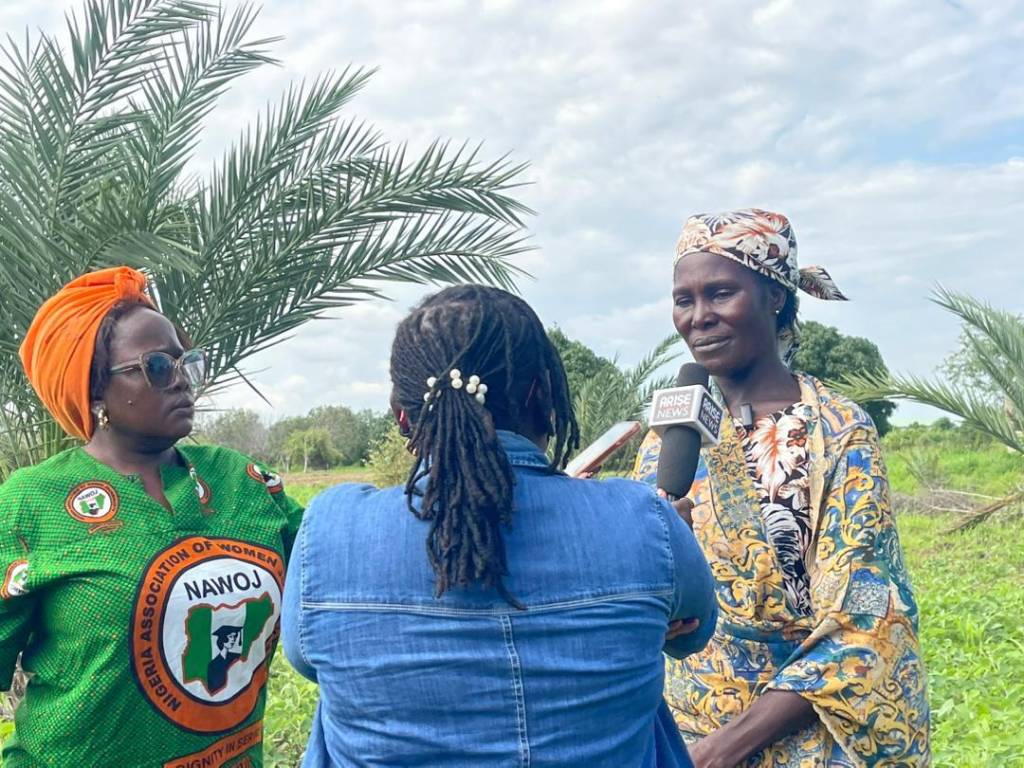
“We’re Empowering Women, Youth, and Persons With Disabilities” – Propcom+ Director
In her welcome remarks, Dr. Adiya Ode, Political Director and Country Representative of Propcom+, highlighted the vital role of journalists as not only conveyors of information but also partners in shaping public understanding of Climate-Smart Agriculture (CSA). She stressed that because many narratives surrounding CSA are often inaccurate, it is essential to build the capacity of journalists to communicate these issues both professionally and accurately.
Sharing an overview of Propcom+, Dr. Ode explained that the programme is designed to drive climate-smart and inclusive economic growth in Nigeria by leveraging market systems and empowering vulnerable groups, including women, youth, and persons with disabilities. The strategy, she noted, is anchored on building resilience, increasing productivity, and reducing poverty by strengthening value chains, supporting smallholder farmers, and promoting private sector-led innovations.
“By addressing systemic barriers such as limited access to finance, weak market linkages, and environmental challenges, Propcom+ fosters sustainable livelihoods while aligning with Nigeria’s development priorities and global climate adaptation goals. Our programme targets to impact 3.79 million smallholder farmers and SMEs with increased incomes and resilience to climate change — and half of these beneficiaries are women,” she said.
Dr. Ode further emphasized that Propcom+ applies a market systems development approach to ensure sustainability: “As external actors, we do not interfere with the functioning of markets but instead work with market actors to facilitate their actions. This ensures interventions are sustainable while strengthening the enabling environment for markets to thrive.”
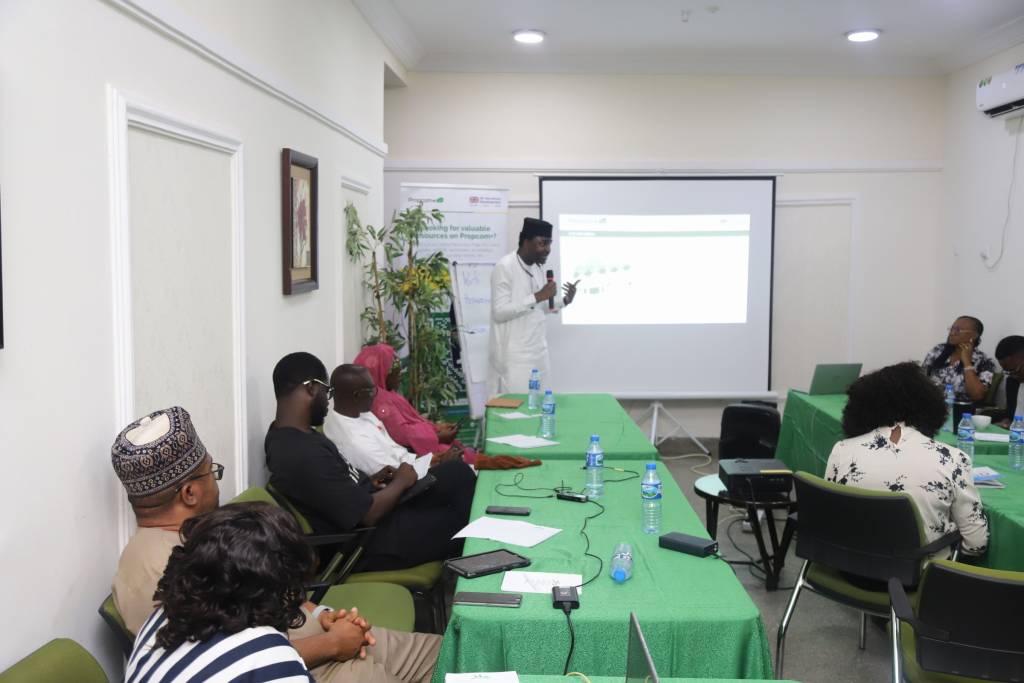
“Media Essential in Demystifying CSA through Solutions-Driven Stories” – Trainer
Training facilitator Mr. Adam Alqali, Editor-in-Chief of African Newspage, described CSA as an approach to farming that boosts productivity and resilience to climate change while protecting the environment. CSA, he explained, combines improved practices—such as drought-tolerant seeds, efficient water use, agroforestry, and soil conservation—with innovative technologies and knowledge-sharing to ensure food security and sustainability.
Mr Alqali noted that CSA is tailored to local conditions, making farming systems more resilient to shocks like droughts, floods, and pests, while also contributing to global climate goals. He underlined the media’s crucial role in demystifying CSA and promoting its adoption in Nigeria.
“The media’s role in demystifying CSA through solutions-driven stories is essential for bridging knowledge gaps. When journalists highlight real solutions and local successes, they build trust, inspire action, and make CSA relatable for communities. Policymakers are also more likely to act when they see grounded, evidence-based stories. Storytelling has the power to transform CSA from policy into everyday practice,” Mr Alqali assured.
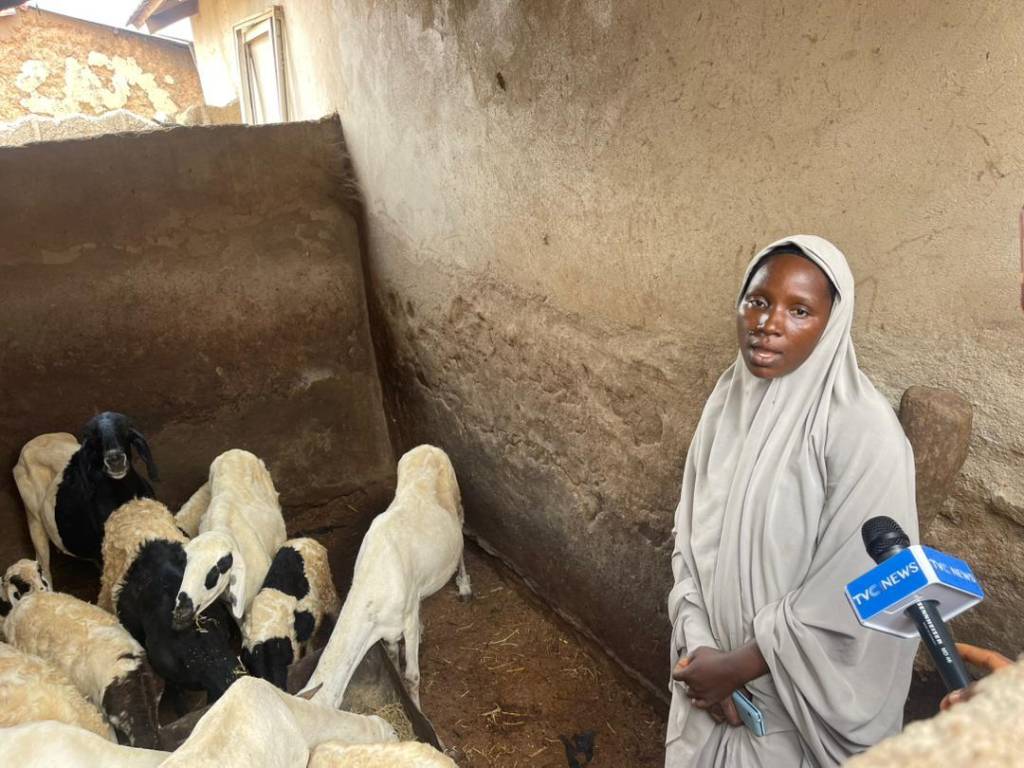
“Media Key to Making Climate Information Relatable” – Veteran NTA Reporter
One of the trainees, veteran NTA reporter Hamisu Rogo, reflected on the urgency of climate change and its direct impacts on agriculture in Nigeria, citing visible effects such as rising water levels, desert encroachment, and declining harvests. While climate change cannot be halted, he said CSA provides practical solutions to help communities adapt and build resilience.
Rogo also stressed the role of development programmes like Propcom+ in supporting Nigeria’s agricultural system through improved seeds, vaccines, and inputs, as well as by connecting farmers with investors. He underscored the importance of the media in simplifying CSA messages so that people can connect environmental changes with their daily realities:
“Climate change is a reality and its impacts are becoming visible daily. While we cannot stop it, CSA transforms the way we farm so that yields are maintained and poverty is reduced. Unfortunately, discussions about climate change in Nigeria are often too academic. People see changes in their lives but don’t always connect them to the environment. This is why the media is vital—making the message relatable and helping people understand why support for adaptation is needed.”
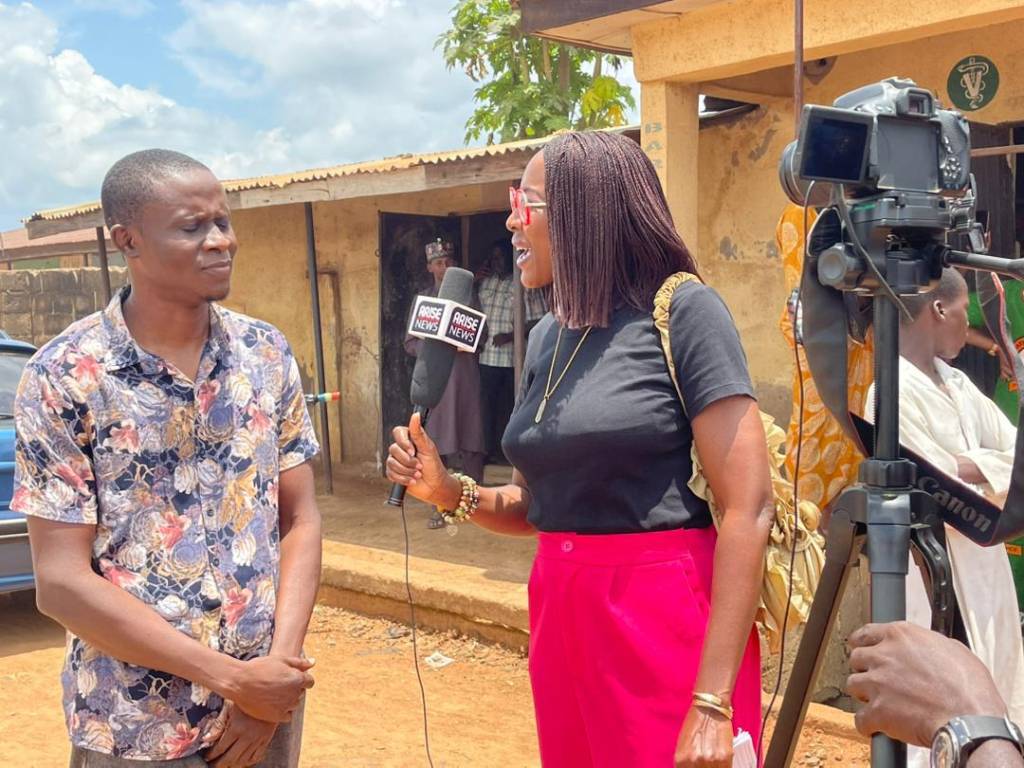
“I Can Now Better Report Climate Impacts, Responses” – Arise TV Anchor
Arise TV anchor Constance Ikokwu shared how the training broadened her perspective beyond her usual beats of politics, business, and international affairs, underscoring the centrality of agriculture as the foundation of human survival.
“Beyond theory, I have gained insights into how climate change impacts both people and the environment, as well as the strategies being used to address it. Food security is non-negotiable. Every journalist should understand and communicate CSA to the public. At the end of the day, everyone needs food. You can live without luxury goods but not without what sustains life.”
Ikokwu said the training enriched her understanding of CSA and inspired her to integrate climate perspectives into her reporting: “If farmers’ challenges are addressed, they can improve yields and productivity. In turn, our media analysis can better highlight the impact of climate change and the responses to address it.”
The 21 journalists trained under the Propcom+ capacity-building programme were drawn from across Nigeria, representing some of the country’s most influential media houses—spanning television, radio, print, and online platforms. These included Channels TV, TVC, Arise TV, the Nigerian Television Authority (NTA) and the Federal Radio Corporation of Nigeria (FRCN), as well as leading newspapers Vanguard and Punch, alongside the News Agency of Nigeria (NAN).
By equipping journalists with knowledge, tools, and human-centered storytelling skills to make CSA practical and accessible, Propcom+ is ensuring Nigeria’s media plays a transformative role in shaping policy, strengthening community resilience, and helping farmers adapt to the realities of climate change.

